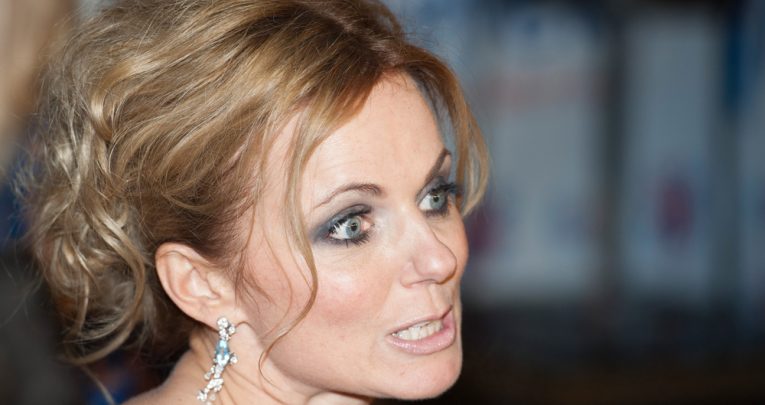The Free School Free-For-All – Why Celeb Educators Serve To Distract Us From What’s Really Happening

Not every wannabe can run a successful school, says Fiona Millar – so let’s not get celebrity stardust in our eyes So Geri Halliwell wants to open a free school. This inevitably provoked hilarity on Twitter and elsewhere when it came to light late last year, after the former Spice Girl explained in a newspaper […]

- by Fiona Millar
- Writer and education campaigner Visit website

Not every wannabe can run a successful school, says Fiona Millar – so let’s not get celebrity stardust in our eyes
So Geri Halliwell wants to open a free school. This inevitably provoked hilarity on Twitter and elsewhere when it came to light late last year, after the former Spice Girl explained in a newspaper interview that she believes in education as a “foundation for life”.
That lines her up with most of the human race – although not all of us would stake a particular claim to be good educators. However it did (excuse the pun) spice up a weekend that had been bereft of other interesting education news.
Reckless and wasteful
Yet it was also a useful prompt to take stock of the free school policy that was, at this stage in the last parliament, all that anyone talked about. When I saw the Halliwell story I was reminded of the 2010 equivalent – a proposal for a Goldie Hawn free school specialising in meditation. For the record, it never came to much.
Five years on, however, just over 300 free schools have been set up across the country, with another hundred or so in the pipeline. Even though the original spin focused on schools being founded by idealistic teachers and parents dissatisfied with their existing local provision, in reality the new schools are more likely to have been initiated by local authorities, academy chains and other existing school providers, such as the Church of England.
And for a very good reason. Most parents don’t have the time or resources of a Geri Halliwell figure, nor do they particularly want to spend their spare time poring over complex application forms and business plans. In spite of all the propaganda, polling evidence also suggests that the majority are happy with what is currently available in their local areas [PDF].
Nevertheless the Prime Minister has promised a further 500 free schools over this parliament. In a sneaky sleight of hand, ministers slipped out a statement just before the 2015 summer holidays [PDF], revealing exactly how it will achieve this ambitious target, at a time when creating (what are at times unnecessary) new schools could be seen as reckless and wasteful.
The name game
It has been the case since 2011 that any new school has to be an academy or free school. Even if local authorities need to set up a school to meet population growth in a particular area, that school must be an independent state school, contracted to and funded directly by the DfE, rather than a school maintained by the local authority.
But as of last year, any new school – be it the Geri Halliwell School for Arts and Business, the Goldie Hawn Mindfulness Academy or a local authority proposal – will automatically be classified as a ‘free school’.
This is a handy quick fix for ministers, as the population bulge predicted in the next few years means that local authorities around the country will be obliged to set up scores of new schools to meet their statutory duty to provide a place to every child who needs one. The DfE may not even need the dwindling band of parents and celebrity wannabe school entrepreneurs to reach its target.
But they could be making a tactical mistake. The DfE’s data dump of unvalidated 2015 GCSE results suggests that neither free schools nor sponsored academies are performing particularly well when compared to maintained schools, national averages or converter academies, many of which were already good or outstanding.
This is just the latest piece in a long line of evidence suggesting that school ‘type’ is not a golden bullet when it comes to guaranteeing excellent local provision. In the end, this usually comes down to good leadership and teaching, adequate resources, a broad curriculum and a balanced intake – which can be hard to maintain if a new and unnecessary school (run by a high profile national celebrity) turns up on your doorstep, garnering headlines and disproportionate publicity.
A question of support
Among the many tweeters commenting on the Geri Halliwell story, one pointed out that there should be no need for her to open a free school for the arts, because all state schools should be offering good arts education.
As someone who lives very close to the neighborhood in which Ms. Halliwell wants to try her experiment, I can assure her that our local schools already do arts education pretty well. If we need new provision at all, it should be planned, funded, useful and integrated into the local ecology of schools. If it’s parachuted in from above and sprinkled with transitory stardust, it will almost certainly evaporate as quickly as it arrived.
Ms Halliwell may really, really want to open this school – but her entry onto the education stage is just another reminder that this policy area, on which the government is still unhealthy fixated, is a total distraction from the real issues being faced the majority of schools, teachers and pupils across the country.
The pressure for continued improvement alongside funding cuts, teacher shortages and the demands of a new curriculum will be just as unrelenting and merciless, regardless of the name over the school’s door or the fame of its founder.
Fiona Millar is a columnist for The Guardianand a co-founder of the Local Schools Network; for more information, visit fionamillar.com or follow @schooltruth










